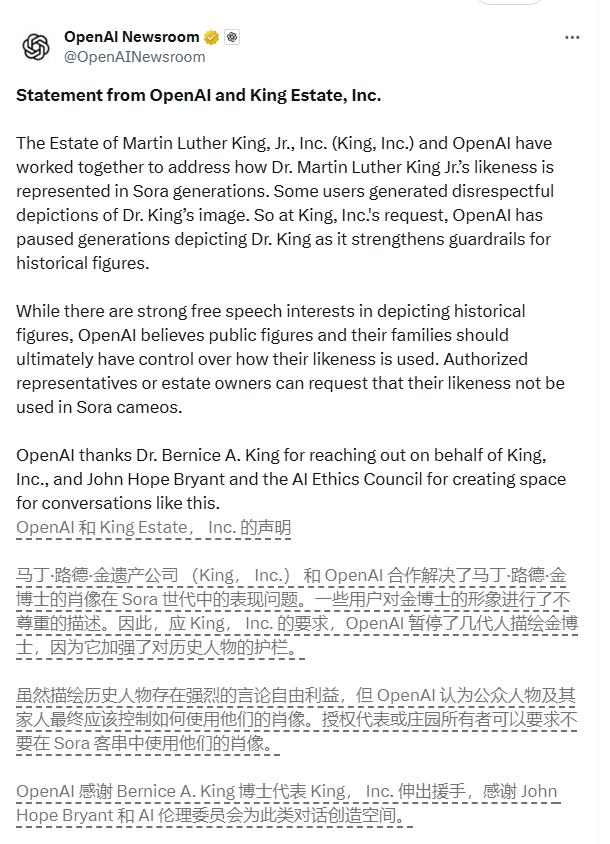OpenAI recently announced a collaboration with the Martin Luther King Jr. Estate, Inc., to address the use of Dr. Martin Luther King Jr.'s likeness in its video generation tool, Sora. This move aims to respond to inappropriate generated content and strengthen the protection mechanism for historical figures' likenesses.
According to the statement, some users on the Sora platform used disrespectful descriptions of Dr. King's image, which caught the attention of the estate. In response to the estate's request, OpenAI has suspended the generation of Dr. King's likeness in Sora. This decision is intended to enhance the "guardrails" on the platform to prevent potential misuse. OpenAI emphasized in the statement that while depicting historical figures involves strong freedom of speech interests, the rights of public figures and their families should be given priority.

The company believes that authorized representatives or estate owners have the right to decide how their likenesses are used in generative tools like Sora, including the right to prohibit cameo appearances. This collaboration originated from discussions between the estate and OpenAI, aiming to balance technological innovation with ethical responsibility. OpenAI specifically thanked Dr. Bernice A. King, representing the estate, for her active involvement, and expressed gratitude to John Hope Bryant and the AI Ethics Committee for their contributions to promoting such discussions.
Analysts point out that this incident highlights the ethical challenges faced by generative AI as it develops rapidly. With the popularity of tools like Sora, how to regulate the use of historical figures' likenesses has become an industry consensus. OpenAI stated that it will continue to improve its policies to ensure that AI technology respects cultural heritage and personal dignity.









